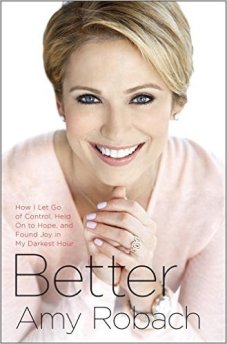As a writer, one of the most common questions I get—if not the most common question—is “Where do you get your ideas?”
Those of you who follow me on social media know I have a habit of posting outrageous/interesting/sometimes horrifying news articles with a sub-title of Writers Are Such Ghouls, Part…
Generally followed up with some commentary along the lines of “If I ever submitted anything like this to an editor, it would get rejected because it’s just that unbelievable.”
But as most of us know, sometimes, life really is too unbelievable. And oftentimes, art skirts uncomfortably close to the truth. Both sentiments I encountered a great deal over the course of submitting BOTH SIDES NOW. It’s no great secret that book had a very long road to publication, most of the rejections consisting of “This is beautifully written but…” and from there you could insert variations on a theme of “It’s difficult to believe something like this could actually happen.”
Sometimes the “this” had to do with the idea that the spouses of cancer patients could fall into a comrades-under-fire affair (ironically, a story element I got from an actual news article), but just as often, the “this” referred to the fact that a marriage could very nearly fall apart, stretched to the breaking point by a cancer diagnosis and subsequent treatments. I think we, as a society, have these romanticized ideals of what it’s like to Deal With A Deadly Disease—a trend I suspect may have begun with publication of Erich Segal’s LOVE STORY (and we won’t even talk about the movie version—oy!). There’s this idea that the sufferer must, you know, suffer bravely, yet quietly and elegantly, and the spouse/caretaker must Gracefully Bear Up Under Pressure.
Yeah…not so much.
When I wrote BOTH SIDES NOW, I wanted to not only write Nick and Libby’s stories as the so-called “healthy ones” in their respective marriages, but I also wanted to show snapshots of how two very different relationships dealt with the intrusion of this horrific disease and how it has a way of utterly upending everything you know. To that end, I read—a lot. I spoke to a lot of people, especially nurses, about what they saw and experienced. And in the end, I tried to craft a story that wasn’t particularly glamorous or sexy, but that was human.
And yet, I got “This is kind of unbelievable…” responses.
Then days like today roll around, where I’m lazily perusing headlines as I have my second cup of coffee (See: Writers Are Such Ghouls, Part…) and very nearly do a comical spit-take over a decidedly not comical moment. Because today, I saw this headline:
Amy Robach and Andrew Shue: Cancer Nearly Destroyed Our Marriage
Amy Robach is a Good Morning America anchor who, a few years ago, underwent a mammogram screening on-air as part of GMA’S October Pink Initiative. Because of that screening, she discovered she had breast cancer, underwent a bilateral mastectomy, and several debilitating rounds of chemotherapy. At the same time, she was newly married to actor Andrew Shue. To say that all hell would broke loose would apparently be putting it mildly. (See: Headline above.)
Now Amy has written a memoir called BETTER in which she describes her experience with breast cancer, from the decision to undergo her first mammogram in such a public fashion to how it affected her children and yes, her marriage. How it very nearly fell apart and how they painstakingly put it back together.
For me, it was like bringing everything full circle. I was inspired to write BOTH SIDES NOW in part because many years ago I read an article about a young woman who’d been diagnosed with breast cancer less than a year after her wedding. The strain on her marriage was such that she offered her husband an alternative—she gave him permission to have an affair if necessary, to find physical and emotional comfort with someone else while she worked on putting herself back together. He didn’t take her up on the offer, but their story stayed with me. And served as the spark of “What if…?” that serves as inspiration for so many writers.
Then I got told how unbelievable it was. Until I found the editor who found it believable.
I’ve had readers tell me it’s kind of unbelievable. I’ve also had readers tell me it’s most assuredly believable.
And then I saw that headline. And had Amy Robach and Andrew Shue tell me, even if indirectly, that it’s definitely believable. And real. And human.
That’s all I ever really wanted to do, you know. Write a human story.
Regardless of any future outcome, I’m content knowing that on that level, I succeeded.
(And yes, I’ll be reading BETTER in the very near future.)